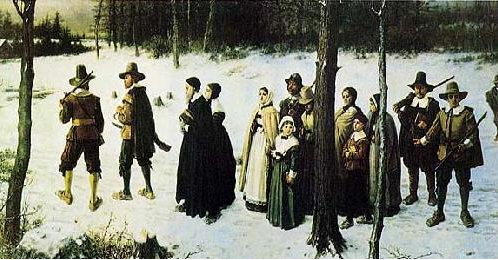The book of Philemon in the Bible is important to consider on the topic of slavery. The standard interpretation of Philemon in older commentaries (John Calvin, Matthew Henry, and many others) goes something like this:
– Slaveholding is not sinful per se. If slaveholding were sinful per se, then surely the Apostle Paul would have rebuked Philemon for being a slaveholder and would not have sent Onesimus back to Philemon. What would be the point of sending Onesimus back to Philemon, if slaveholding is immoral? For example, if Philemon had been a brothel owner (which is per se sinful) and there were a runaway whore, would the Apostle Paul have addressed the matter in the way he addressed this case, by sending the woman back to the pimp?
– The arguments of verses 13-14 assume that Onesimus was rightfully the chattel slave of Philemon, such that it was Philemon’s choice to decide how Onesimus would be employed. As John Calvin points out, “Paul himself, through modesty, was unwilling to deprive Philemon of his right”.
– In verse 16, when it reads “not now as a servant”, the Apostle Paul did not mean Onesimus was no longer a servant (or chattel slave) of Philemon, but (as Matthew Henry comments) he meant “not merely or so much” a servant. In other words, there is an implied “merely”, even if not express, as can be deduced from the overall context.
In contrast, many modern commentaries interpret verse 16 as stating that Onesimus was being returned to Philemon, but not as a servant. They view chattel slavery as per se wrong, and they assert the Apostle Paul viewed it as wrong, and hence said Onesimus was being returned but not as servant. For instance, Nelson’s Bible Dictionary, as published in 1986, says that the Apostle Paul expected “that Philemon would receive Onesimus back as a brother in the Lord, not as a slave (v. 16)”, as if the two were inherently contradictory. Nelson’s goes on to say that “although Paul never, so far as we know, called for an end to slavery, the Epistle to Philemon laid the ax at the root of that cruel and deformed institution…”
But this modern interpretation begs the obvious question: why is Onesimus even being returned to Philemon if Onesimus has no ownership rights over him? Furthermore, if slavery is inherently sinful, then how do we account for the Old Testament treatment on slavery, combined with no clear statement in the New Testament that chattel slavery is wrong? Where in the Bible can we clearly deduce that slaveholding is a sin? Or is this instead a modern Western view being imposed upon the Biblical text? And if it is an imposition, then it contradicts the Biblical doctrine of sola scriptura.
I believe the Bible, exhibited in the book of Philemon, teaches that chattel slavery is an appropriate punishment for sinful rebellion, and that in a Fallen sinful world slavery can be an appropriate civil response to criminal behavior, some forms of debt which cannot be repaid, conquered enemies in a lawful war, etc. Even the Michigan constitution, which in general prohibits slavery, recognizes its appropriateness as punishment for some forms of criminal behavior. Slavery in various circumstances can be the merciful response. And God has mercifully used it to bring some to Christ who likely would not otherwise have done so. Contrary to the modern view, the Bible teaches that all of Adam’s sinful race deserve to be chattel slaves eternally, which is why Jesus Christ vicariously became a suffering servant to redeem His people.
The book of Philemon also teaches the great value of the Biblical gospel, and hence the great debt owed by recipients of that gospel to the human instruments bringing that gospel. We read in Philemon verse 19: “I Paul have written it with mine own hand, I will repay it: albeit I do not say to thee how thou owest unto me even thine own self besides.” Philemon owed much to the Apostle Paul because he was the human instrument bringing the gospel to Philemon. Such was also the role played by Protestant white slaveholders in relation to their black slaves brought from paganism in Africa. As expressed by the Puritan Rev. Cotton Mather in his booklet “The Negro Christianized”: “Christianity does Marvellously befriend and enrich and advance Mankind. The greatest Kindness that can be done to any Man is to make a Christian of him. Your Negroes are immediately Raised unto an astonishing Felicity, when you have Christianized them. They are become amiable spectacles, & such as the Angels of God would gladly repair unto the Windows of Heaven to look upon.” This past period in redemptive history thus played a positive role in bringing people from paganism to Christianity. It contradicts the Bible to sue for reparations what instead should be looked upon with gratitude. This does not mean at this point we should return to race-based slavery of blacks; we should not. Rather, at this point in redemptive history we should be seeking that all nations, including ones majority black and ruled by blacks, should “kiss the Son”. This should be our goal now that Christianity has been brought to blacks and many have at least nominally embraced, and some savingly.
